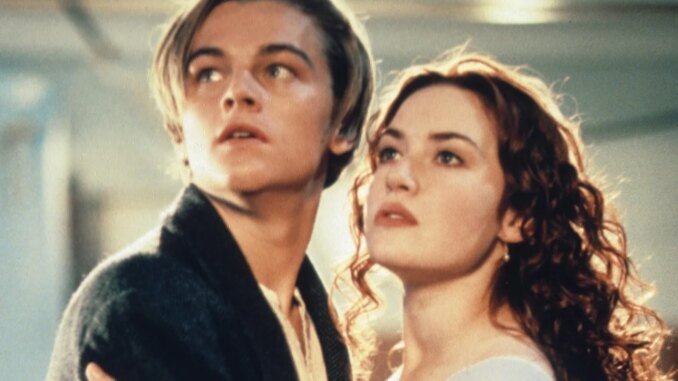
The Ship That Sank (For Him): Ethan Hawke's Relief at Avoiding DiCaprio's Titanic Fate
The ocean of Hollywood is vast and treacherous, filled with opportunities that glimmer like sirens, promising glory but often leading to the rocks. For Ethan Hawke, a veteran of the screen known for his thoughtful performances and introspective characters, one particular siren call, the role that ultimately launched Leonardo DiCaprio into superstardom, was thankfully avoided. Hawke's relief at missing the opportunity to play Jack Dawson in James Cameron's "Titanic" isn't a matter of regretting a missed paycheck; it's a testament to his understanding of his own artistry and a savvy recognition of the potential pitfalls of overnight fame. It’s a story that speaks volumes about the paths not taken, and the quiet satisfaction of staying true to one's own artistic compass.
Hawke’s career trajectory, while undeniably successful, is markedly different from DiCaprio's post-"Titanic" ascent. While DiCaprio embraced the mantle of heartthrob and blockbusters, gradually transitioning to more serious, auteur-driven roles, Hawke consistently sought out projects that challenged him artistically, even if they didn't guarantee box office dominance. From the gritty realism of "Training Day" to the philosophical musings of Richard Linklater's "Before" trilogy, Hawke cultivated a reputation for depth and authenticity. This curated path suggests that he recognized early on that the immense pressure and global scrutiny that followed "Titanic" might have stifled his creative spirit.
Imagine Hawke stepping into the role of Jack Dawson. He possesses the inherent vulnerability and earnestness to portray the romantic artist, but his persona lacks the untamed, almost mythical quality that DiCaprio brought to the part. DiCaprio’s boyish charm and inherent charisma were perfectly suited to embody the penniless artist who steals the heart of a wealthy socialite. Had Hawke taken the role, he might have offered a more grounded, perhaps even intellectual, interpretation of Jack, but it’s unlikely he would have ignited the same global fervor.
Furthermore, the "Titanic" phenomenon was a cultural tsunami, engulfing its lead actor in a tidal wave of attention. For DiCaprio, it was a transformative experience, propelling him into the stratosphere of celebrity. While he ultimately navigated the ensuing chaos with remarkable skill, leveraging his fame to champion environmental causes and collaborate with acclaimed directors, the journey wasn't without its challenges. Hawke, with his more reserved and contemplative nature, might have found such intense scrutiny suffocating. The relentless paparazzi, the constant pressure to maintain a certain image, and the risk of being forever defined by a single role could have hindered his artistic growth.
Hawke's relief, therefore, stems from a deep understanding of himself and the kind of artist he aspires to be. He values the freedom to explore diverse characters and work with directors who prioritize artistic vision over commercial success. He cherishes the ability to maintain a relatively low profile, shielding himself from the intrusive glare of mainstream celebrity. "Titanic" offered a shortcut to fame, but it also carried the risk of limiting his artistic horizons. By sidestepping that potential fate, Hawke has been able to forge a career defined by integrity, experimentation, and a quiet dedication to his craft.
Ultimately, Ethan Hawke's perspective on missing the "Titanic" role provides a valuable lesson. Success in Hollywood isn't a monolithic concept. It's not solely measured by box office numbers or magazine covers. True success, for artists like Hawke, lies in pursuing projects that resonate with their soul, maintaining their creative autonomy, and staying true to their own unique voice. While the world may remember Leonardo DiCaprio as Jack Dawson, Ethan Hawke has built a legacy of his own, one built on deliberate choices and a profound understanding of the ocean he navigates. He may not have boarded the "Titanic," but he has charted a course that has allowed him to sail towards artistic fulfillment, a destination far more rewarding than fleeting superstardom. And in the end, that's a relief worth more than any sinking ship.